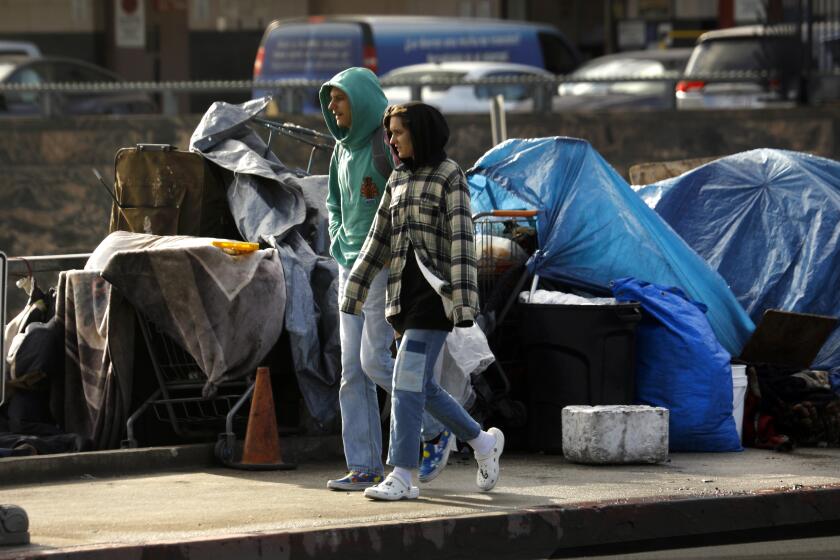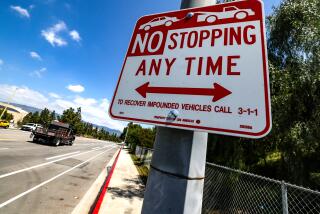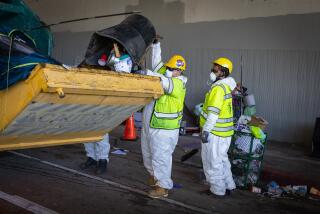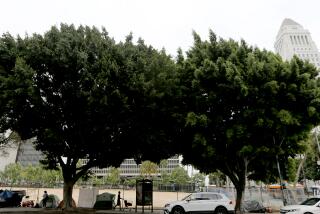Culver City’s sweeping ban on outdoor camping sparks homeless debate
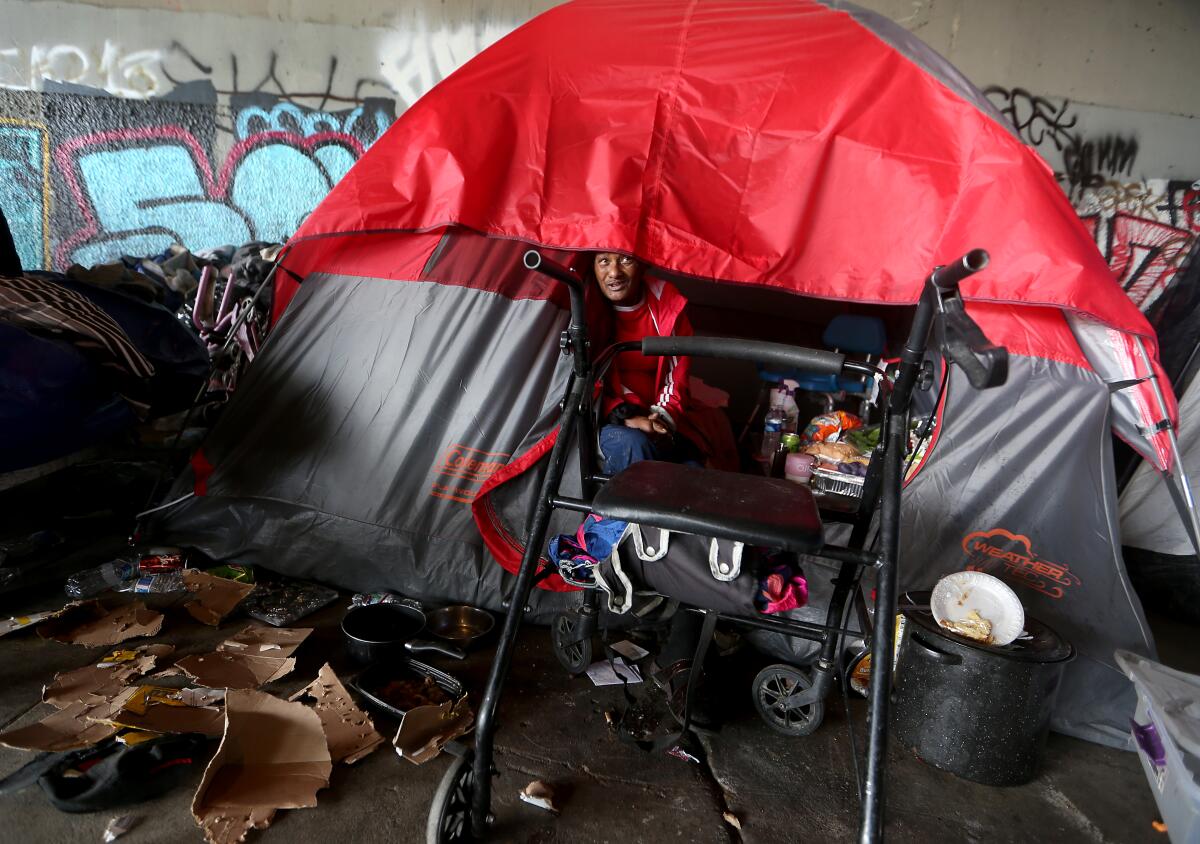
Culver City voted to ban camping in public places, a move that opponents say only forces homeless people off the streets at a time when the city offers few housing alternatives.
A bitterly divided Culver City Council voted 3 to 2 to approve the ordinance Monday. Officials claim the ban will not be enforced until several key goals are met by the city, including the opening of a designated safe-camping site with supportive services and the conversion of 73 units into housing through the Project Homekey program.
Both those projects have yet to be finalized and city officials did not provide a firm deadline for launching the programs during Monday’s council meeting.
The ordinance classifies camping as the act “to erect, maintain or occupy a camp facility for the purpose of living accommodations” and bans it at public parks, public streets, sidewalks, near schools, city-owned properties and several other locations.
Culver City’s ban borrows from Santa Monica’s ordinance against camping, said Culver City Councilman Dan O’Brien, who joined Mayor Albert Vera and Göran Ericksson in voting for the ban. Vice Mayor Yasmine-Imani McMorrin and Councilman Freddy Puza voted against. Both Puza and O’Brien were sworn in to office in December.
The council also voted to instruct police to temporarily hold off giving fines or citations to those who violate the ordinance.
O’Brien claims the city was forced to accelerate its approach to the homeless crisis because the neighboring city of Los Angeles is taking a more aggressive approach. Los Angeles Mayor Karen Bass declared a state of emergency on homelessness in her first day in office in December. Culver City followed suit with its own declaration in early January.
“A fear of mine is if we don’t have all the tools in place to help our own unhoused and Los Angeles already have the enforcement along our borders, then those who refuse housing will just cross the street into Culver City, and then further strain our resources,” O’Brien told The Times.
Under the ordinance, police can tell people living on the street that if they refuse housing or other services the city can legally tell them they cannot keep camping in public spaces, O’Brien said.
“The desire on our part is that this ordinance will help give them that little extra push to accept the housing and services that we are offering,” O’Brien said.
O’Brien described the ban as a “care-based process of helping people.”
The new mayor of Los Angeles instructed city departments to complete all reviews of affordable housing and shelter applications within 60 days. They usually take six to nine months, officials said.
Matthew Katz, mutual aid organizer in the Culver City and Palms area, calls the city’s anti-camping ordinance confusing.
“It’s a weird kind of doublespeak, where the city said we’re doing this to help people but I just don’t really understand how they work through this logic where this is going to help anyone,” Katz said. “I do not see how the specter of force is going to make anyone more likely to go into a motel.”
“There will be a body count with taking away people’s tents,” former Culver City Mayor Alex Fisch told The Times the morning after the vote. Fisch said he would rather have the city focus on securing more housing and safe-camping sites to help people living on the streets.
“That should be the focus, not making it illegal to be poor,” Fisch said.
O’Brien argues the ban is not a radical approach, because other cities have taken the same model.
“I just think that we need to have every tool at our disposal. And having a no-encampment ordinance is one of those tools,” O’Brien said.
In a social media post, council member Puza accused O’Brien, Ericksson and Vera of investing “time and money on fast-tracking an ordinance that tells people where they can’t go but not where they can go and ... to punish them for being poor.”
He argues that the housing and safe-camping rules were all put in place by the previous council majority, which included Fisch.
McMorrin, the vice mayor, called the ordinance horrible, cruel and unnecessary.
“Not one unhoused person asked for enforcement,” McMorrin wrote in a tweet after the council vote. “What they asked for was housing, food, resources, laundry, showers, mental health care and to inform policy that impacts them most.”
More to Read
Start your day right
Sign up for Essential California for news, features and recommendations from the L.A. Times and beyond in your inbox six days a week.
You may occasionally receive promotional content from the Los Angeles Times.
